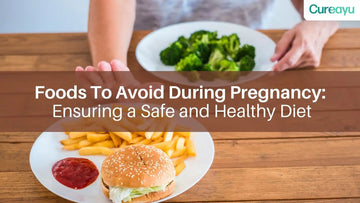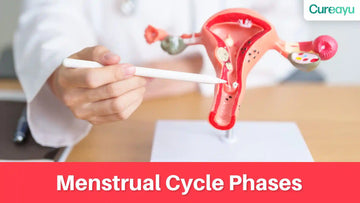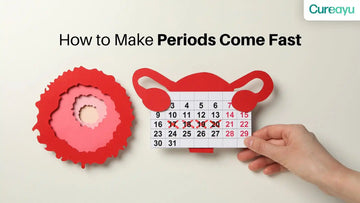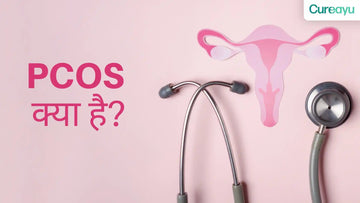Pregnancy is a time of immense joy and excitement, but it also comes with a responsibility to ensure the health and well-being of both the mother and the growing baby. One of the most crucial aspects of prenatal care is maintaining a balanced and nutritious diet. The foods you consume during pregnancy can significantly impact your baby's development and your overall health. While there are many foods that are beneficial during pregnancy, there are also certain foods that should be avoided to prevent potential risks. Understanding which foods to avoid and why is essential for a safe and healthy pregnancy journey.
Also Read: Hormonal Imbalance Symptoms: Signs, Causes, and Solutions
Importance of Right Food During Pregnancy
Eating the right food during pregnancy is vital for several reasons. Firstly, it ensures that the baby receives the essential nutrients needed for proper growth and development. Nutrients like folic acid, iron, calcium, and protein play critical roles in the baby's development, including brain formation, bone health, and overall growth. Secondly, a balanced diet helps maintain the mother's health, providing her with the energy needed to support the pregnancy and cope with the physical changes that occur. Lastly, consuming the right foods can help prevent complications such as gestational diabetes, preeclampsia, and low birth weight.
How To Choose Pregnancy Diet
Choosing the right pregnancy diet involves a careful selection of foods that provide a balance of nutrients. It is essential to focus on whole foods, including fruits, vegetables, whole grains, lean proteins, and healthy fats. These foods offer the necessary vitamins, minerals, and fiber required for a healthy pregnancy. Additionally, it's crucial to eat a variety of foods to ensure a wide range of nutrients.
Incorporating a rainbow of fruits and vegetables into your diet can help meet your nutritional needs. Leafy greens, berries, citrus fruits, and colorful vegetables are excellent sources of vitamins and antioxidants. Lean proteins like chicken, fish, beans, and legumes provide essential amino acids, while whole grains like oats, quinoa, and brown rice offer fiber and energy. Healthy fats from avocados, nuts, and olive oil support brain development and hormone production. Consulting with a healthcare provider or a nutritionist can also help tailor a diet plan that suits your specific needs and any dietary restrictions you may have.
Also Read: Unwinding the Mystery: Can Pregnancy Occur in PCOD
Best Food For Pregnant Women
- Leafy Green Vegetables: Rich in folic acid, iron, calcium, and fiber, which are essential for preventing birth defects and supporting the baby's growth.
- Lean Proteins: Sources like chicken, fish, beans, and legumes provide the necessary amino acids for the baby's development.
- Whole Grains: Foods such as oats, quinoa, and brown rice are high in fiber and essential nutrients, helping to maintain energy levels and prevent constipation.
- Dairy Products: Milk, cheese, and yogurt provide calcium and vitamin D, crucial for the baby's bone development.
- Fruits: Berries, citrus fruits, and apples are packed with vitamins, antioxidants, and fiber, supporting the immune system and digestion.
- Nuts and Seeds: Almonds, walnuts, and chia seeds offer healthy fats, protein, and omega-3 fatty acids, beneficial for brain development.
- Avocados: Rich in healthy fats, folate, and potassium, they help in the development of the baby's brain and nervous system.
- Eggs: A great source of protein and choline, which is important for brain development.
- Sweet Potatoes: High in beta-carotene, which the body converts to vitamin A, essential for the baby's skin and eye development.
- Legumes: Beans, lentils, and chickpeas provide protein, iron, folate, and fiber, which are vital for preventing anemia and supporting overall health.
Foods To Avoid During Pregnancy
During pregnancy, it's essential to be mindful of certain pregnancy foods that can pose risks to the health of both the mother and the baby. Pregnancy food choices should prioritize safety and nutritional value. Here are ten foods to avoid during pregnancy:
- Raw and Undercooked Meat: Consuming raw or undercooked meat can expose you to harmful bacteria such as Salmonella and E. coli, which can lead to food poisoning and serious infections. Always ensure that meat is cooked thoroughly to avoid these risks.
- Unpasteurized Dairy Products: Unpasteurized milk and cheese can contain Listeria, a bacteria that can cause listeriosis, leading to miscarriage, stillbirth, or severe illness in newborns. Opt for pasteurized dairy products to ensure safety.
- Raw Eggs: Raw or undercooked eggs can be contaminated with Salmonella, which can cause food poisoning. Avoid foods made with raw eggs, such as homemade mayonnaise, certain salad dressings, and raw cookie dough.
- Certain Seafood: Fish high in mercury, such as swordfish, king mackerel, and shark, should be avoided as mercury can harm the baby's developing nervous system. Additionally, avoid raw fish and shellfish to prevent bacterial infections.
- Deli Meats and Hot Dogs: These can be contaminated with Listeria unless they are reheated to steaming hot. Listeria infection can cause severe complications during pregnancy.
- Raw Sprouts: Raw sprouts, including alfalfa, radish, and mung bean sprouts, can harbor bacteria like Salmonella and E. coli. It's safer to consume cooked sprouts to eliminate any potential risk.
- Alcohol: Alcohol consumption during pregnancy can lead to fetal alcohol syndrome, which can cause developmental delays, physical abnormalities, and behavioral issues in children. It is safest to avoid alcohol entirely during pregnancy.
- Caffeine: High caffeine intake has been linked to an increased risk of miscarriage and low birth weight. Limit caffeine consumption to less than 200 mg per day, equivalent to one 12-ounce cup of coffee.
- Processed Junk Foods: These foods are typically high in unhealthy fats, sugar, and calories but low in essential nutrients. Consuming too much junk food can lead to excessive weight gain and increase the risk of gestational diabetes.
- Certain Herbal Teas: Some herbal teas contain herbs that may not be safe during pregnancy. It's best to consult with a healthcare provider before consuming any herbal teas to ensure they are safe for you and your baby.
Also Read: A Comprehensive Guide to Period Pain Relief: Strategies for Comfort and Well-being
Conclusion
Ensuring a healthy diet during pregnancy is crucial for the well-being of both the mother and the baby. By understanding which foods to prioritize and which to avoid, you can make informed choices that support a safe and healthy pregnancy. Remember to consult with your healthcare provider or a nutritionist to tailor a diet plan that meets your specific needs and ensures optimal nutrition. Making mindful food choices will help you navigate this exciting journey with confidence, knowing that you are providing the best possible environment for your baby's growth and development.












